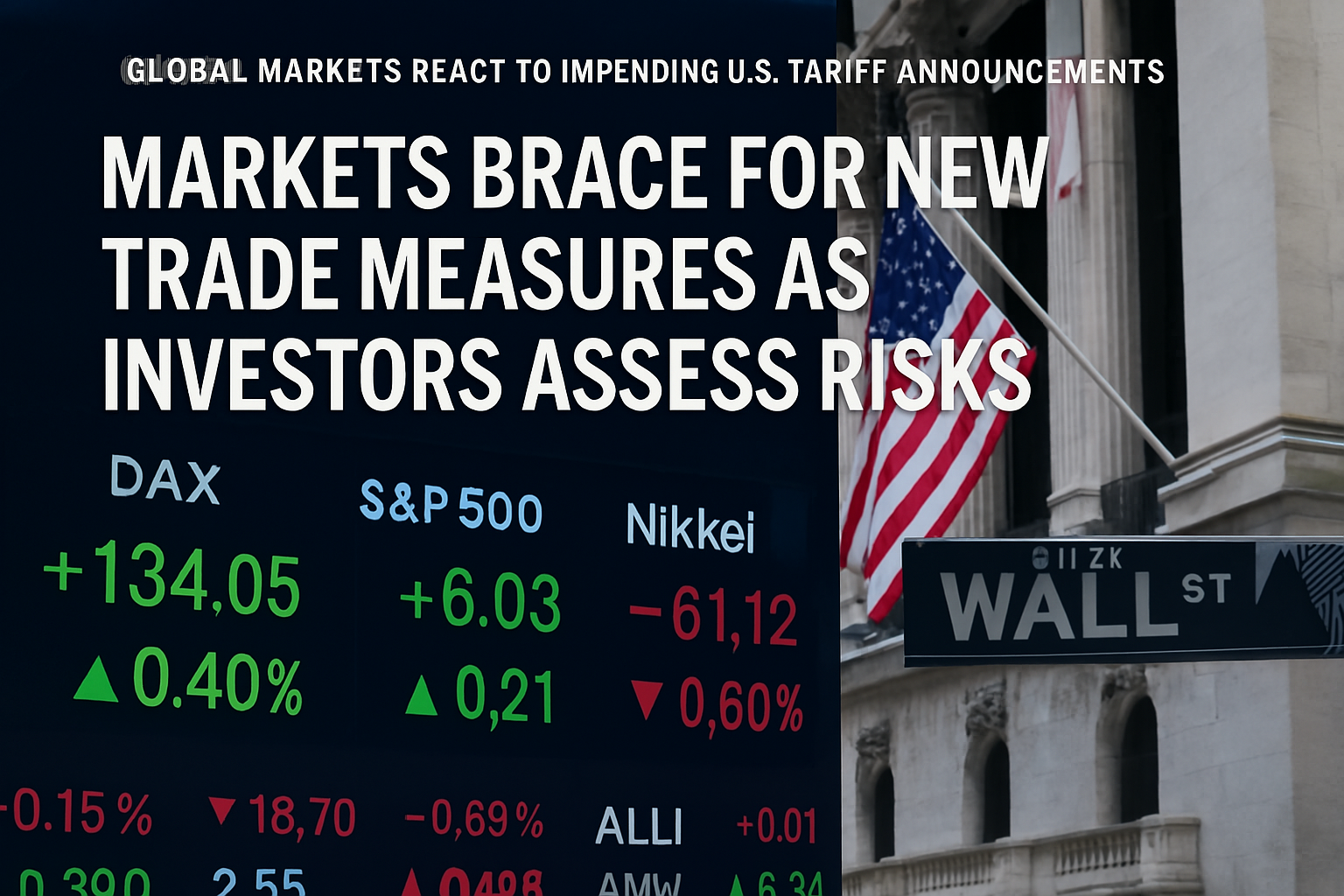Markets Brace for New Trade Measures as Investors Assess Risks
Global markets are experiencing heightened volatility as investors await President Donald Trump’s upcoming “reciprocal tariffs” announcement. While European stock indices have shown signs of recovery following initial declines, Asian markets remain mixed, reflecting uncertainty over U.S. trade policy shifts.
According to Reuters and AP News, the anticipation of new tariffs has led to fluctuations in global equity markets, impacting trade-sensitive sectors such as technology, automotive, and manufacturing.
Why This Matters for Investors
The introduction of new U.S. tariffs could have widespread economic and financial implications. Key considerations include:
- Potential Trade Disruptions: Tariffs could lead to retaliatory measures from trading partners, disrupting global supply chains.
- Sector-Specific Impacts: Industries reliant on international trade, including semiconductors, automobiles, and industrial goods, may experience heightened risk.
- Investor Sentiment: Uncertainty surrounding trade policies tends to fuel market volatility, influencing institutional and retail investment strategies.
Bloomberg analysts note that past tariff measures have triggered short-term selloffs, but markets have often stabilized as policy details become clearer.
Global Market Response
Stock market reactions have been mixed:
- European Markets: The FTSE 100 and DAX posted gains as investors anticipated potential exemptions for key European sectors.
- Asian Markets: The Nikkei 225 experienced minor losses amid concerns over export-dependent industries, while China’s Shanghai Composite remained volatile due to fears of U.S.-China trade tensions reigniting.
- U.S. Markets: Futures indicate higher-than-usual volatility, with investors awaiting details on which sectors will be most affected.
Despite these fluctuations, gold prices have risen as a safe-haven asset, reflecting cautious investor sentiment.
Future Trends to Watch
1. Potential Retaliatory Tariffs
If major economies such as China and the European Union introduce countermeasures, global supply chains could be disrupted, affecting export-heavy industries.
2. Federal Reserve & Economic Policy Reactions
The U.S. Federal Reserve may adjust its monetary policy stance in response to economic slowdowns triggered by trade uncertainties. Investors should watch for interest rate shifts and potential market intervention.
3. Corporate Earnings & Guidance
Upcoming earnings reports from multinational corporations will provide insight into how businesses are preparing for tariff-related risks. Companies in manufacturing, retail, and logistics could face cost pressures.
Key Investment Insight
Investors should monitor tariff developments closely and consider portfolio diversification to mitigate risks. Key strategies include:
- Allocating to Safe-Haven Assets such as gold and U.S. Treasuries.
- Evaluating Trade-Resilient Stocks in industries less impacted by tariffs.
- Hedging with Emerging Market Bonds that could benefit from shifts in global capital flows.
While short-term volatility is expected, markets often adjust as policy details emerge. Staying informed and adaptable remains crucial in navigating geopolitical uncertainties.
Stay Updated with MoneyNews.Today
As trade policies evolve, investors must remain proactive. Follow MoneyNews.Today for daily financial insights, expert analysis, and market updates on tariff impacts.





